Emily Ruskovich’s debut is causing a stir. The praise for her writing skills is well-deserved. Her prose has a maturity well beyond her years. From the first page, the reader is at home in this book, curious to learn more and is turning the pages feverishly. The book has dreamy qualities where time seems to be on the back burner while a magnifying glass is applied to an horrific event in which all characters are caught. The harsh and beautiful environment is lovingly and emotionally depicted by the author who is no stranger to the scene. She is a native of our beautiful North Idaho who sings the praises of our fair skies. The characters remain with the reader who cannot put them down or explain them away by any of the normal means. If a book lingers on in the mind, the way this one promises to do, one tends to expect its journey out in the world to be full of praise.
How does the place manage to be so central to the story? The first question one would ask is that could this story be transplanted into say, Kansas City, and read the same. No. In this case, the mountains of Idaho are part of the narrative.
From Page 113:
“Wade and Jenny are prairie people. Prairie people living on a mountain they had not noticed was so much larger than themselves. An acreage purchased in a hurry because it was cheap, because it was nothing like the prairie. Such arrogance and childishness—an avalanche of a dream. But what kind of person would tell them they wouldn’t be trapped on a snowy mountain, when surely, without a tractor or a plow, they would? Still, they should have questioned it. They should have made sure. And now the only other person in the world who knows the truth of their desperation has tattooed his hatred to his hand.”
In spite of the challenges, the story of this family moves along until the day of the murder. The weapon is an ax wielded by a mother, landing on a child. One girl dies, and the other runs away. Wade is left alone with an even bigger problem: his mind is fading with early onset dementia which runs in his family. He meets a music teacher named Ann who decides, in a moment of clarity, that she can take care of him. She inhabits the story in a way that is almost other worldly. She becomes obsessed as she steps into the story as to what really happened on the day of the murder.
Ruskovich has the skill to let the story unfold through the voices and perspectives of other characters. Since we are caught up in the tension of wanting to know more about the events of the fateful day, there is no shortage of curiosity on our part. The way in which the story unfolds is not at all traditional; one part is told through the perspective of a bloodhound.
From page 282:
“The loose skin of a bloodhound is meant to hold the ground. The ears that drag along the forest floor send the scent up the skin, where, trapped within the wrinkles and the folds, it reminds the hound what the trail is even when the trail is lost. The smell of the trail becomes the smell of himself, trapped between the wrinkles of the neck and all around the eyes, which require an effort to rise under the weight of all that skin. Head down, whatever the dog follows he follows blind; gravity heaps the forehead down to the top of the snout, so that the scent between the wrinkles is more of a means of seeing than the eyes of the wrinkles cover..”
“Off-duty, head up, the bloodhound is a different dog. The wrinkles fall open. The forehead is smoothed, the scent let go.
This is how a dog forgets. This is how a dog moves on.
He lifts his head.”
Emily Ruskovich has written an intricate and beautiful book. While she touches on the deep fears we all carry, she also brings to light the good people who come along to help us through. She describes a place full of staggering beauty: a place we know turns pink in the snowy winter sunsets, a place where roads wash out in the spring, but still bring and newcomers who are ready to roll up their sleeves. It is a place where we roar around in boats in the summer, sing songs around the campfire, cut wood for the winter and vow, once found, to never leave. Idaho is not only a great place to live, but it has also inspired Marilynne Robinson‘s novel Housekeeping, has been described by Jess Walters in Beautiful Ruins, was home to Ernest Hemingway and now has played a role in a wonderful book bearing its name.
Page One
It is fitting that I finished David McCullough’s 1776 this week. The book, published in 2005 by Simon and Schuster, hit number one on the national bestseller list. It is not the topic that afforded this success: the skill lies in the narrative which is engaging and gripping. Too often history is viewed as dull and boring by those who may have this impression solely from textbooks. McCullough wisely focuses on the characters. He brings to life the pictures of armies marching, of ships landing, of those who were engaged in the effort, and whose task was the more arduous. How do you put down a rebellion on a distant shore, landing by ship to unfamiliar ground? How do you stop the mighty in their tracks? It was a markedly difficult task for both sides, and as you read the description of battles, it seems that the smart money would certainly have fallen for the British. They had skilled troops who were trained and disciplined while George Washington’s army seemingly sprang up quite suddenly.
History belongs to the victors, but in this case, McCullough presents a clear picture of two sides of the coin. He paints Washington as a man of British ancestry who sought to duplicate the life of English gentry on American soil. He cared deeply about the addition he envisioned and was in the process of building at Mount Vernon. He oversaw all of the details and professed an abhorrence for disorder. The trappings of his comfortable existence in the form of clothing, footwear, books, coach and even the glass in his house were all imported from London. This would not be uncommon for any prosperous colonial, but it struck me as ironic. Like most heroes, his ascent was a reluctant one. Nor did he have a steadfast belief in his men; there were statements recorded of his disdain at times. According to McCullough, Washington was blessed with a bit of luck, favorable weather, and marked persistence: his efforts were successful because of these factors. In my attempt to gain a sense of the George Washington, I found the most telling description came from picturing him riding to hounds.
From page 48.
“Found a fox in Phil Alexander’s island which was lost after a chase of seven hours,” Washington recorded in his diary at the end of one winter day in 1772, but he did not give up, as shown in his entry for the day following: ‘Found a fox in the same place again which was killed at the end of 6 hours.’”
What struck me about this description was not the fact that he engaged in the sport of fox hunting, but that he did not do it lightly, for the fun and revelry, but to accomplish what he set out to do. He did not give up. The bedrock of his character lies in his obstinacy. He could be wrong, he could be temporarily defeated, he could be confounded, but he did not quit.
Concerning the sheer logistics of the effort, it is remarkable to contemplate from today’s perspective. We can communicate around the world from our fingertips; they were marching blind into the night. Not only did they not know where and when the British might strike, but they also had no clear idea of the opposition from their fellow citizens.
Page 118
“In Boston, where the comparatively few Loyalists of Massachusetts had either fled the country or were bottled up with the British, there had never been a serious threat from ‘internal foes,’in Washington’s phrase. In New York, the atmosphere was entirely different. The city remained divided and tense. Loyalist, or Tory, sentiment, while less conspicuous than it had been, was widespread and ranged from militant to the disaffected, to those hesitant about declaring themselves patriots for a variety of reasons, trade, and commerce not being the least of them.
“Two- thirds of the property in New York belonged to Tories. The year before, in 1775, more than half the New York Chamber of Commerce were avowed Loyalists.” p.119
It boggles the mind to think on this now. People who lived and prospered together had taken sides, some divided by region, and others quite mixed. How would it all pan out? How would they manage to live side by side again? In most cases, they did not; the Tories, or Loyalists, left and sailed north leaving behind established farms and businesses generations in the making.
From p. 240
“The problem was not that there were too few American soldiers in the thirteen states. There were plenty, but the states were reluctant to send the troops they had to fight the war, preferring to keep them close to home, and especially as the war was not going well. In August, Washington had had an army or 20,000. In the three months since he had lost four battles- at Brooklyn, Kips Bay, White Plains, and Fort Washington- they gave up Fort Lee without a fight. His army was now divided as it had not been in August and, just as young Lieutenant Monroe had speculated, he had only about 3, 500 troops under his command- that was all.”
Part of what makes McCulloughs work so gripping is that even though we know the outcome, we are caught up in the impossibility of the quest. He gives us a picture of the burning of New York, of the wet and exhausted troops deserting, of common folk called into the fight with some of the gentry joining and others disagreeing. I truly enjoyed the picture McCullough painted of the British landing on Long Island and thoroughly delighting in the land of plenty. Pleasantly surprised by the abundance of delicious fruit, they remarked on well-tended farms and handsome houses pleasingly furnished. Some felt that Americans were prospering at their expense.
How many mothers have said to how many squabbling children that there are two sides to every story? “Unremitting courage and perseverance,” is what Washington asked of his officers and soldiers. One percent of the population was lost to the effort. Those forced to flee are also part of the tale. This week, in the United States, the page turns one more time. A new chapter awaits. We have better communication than ever before, but seemingly, with less understanding of one another. We struggle, we strive, we are determined, and we persevere. We have hope, and we have fear: in that we are united. E Pluribus Unum carries a lot of weight.
Diets Don’t Work: Part Two
Last year at this time, I shared my goals for the new year. Proclaiming that for the first time losing weight did not top my resolutions, I am happy to report that dieting, once again, has no place in my intentions. So how much weight did I pack on in 2016? None. Not dieting resulted in a loss that has me hovering around the ideal. What are the lessons to be learned? As always, I can only speak for myself. I am a rewards based creature, an epicurean who loves delicious food, great music and literature, and I am a happy soul who believes in letting the good times roll. Blake said, “ The road to excess leads to the palace of wisdom.” Deprivation never did anyone any good. That is my sage advice for dieters.

When weight loss becomes noticeable comments will fly. They are often hilarious, combined with a one-two punch, a compliment wrapped in a teensy bit of hostility. Mostly, people want to know about the method. How easy is it to say, “Atkins, or South Beach, or Weight Watchers.” Those are all noble programs which many have tried and are armed against. The comment I heard most is that “you did this slowly.”
I do everything slowly. My family of origin, endowed with a large dollop of ingrained impatience, pointed this out to me constantly. My “creeping like snail” drove everyone around me nuts. I stubbornly refused to change and to this day, hate being pushed. At the same time, I can be impatient too. So the slow technique will probably not be a winner, nor will it sell the latest diet book. We gain weight gradually, so would it not stand to reason that it may take an equal measure of time to burn it off? After all, if you are going to go down a pant size or two, wouldn’t you want to get some wear out of the smaller sizes before they hit the Goodwill bag?
With weight loss not being on the list of resolutions, I have spent a few days thinking long and hard about 2017. Last year I wrote that I wanted to focus on more bliss. It worked. What do I want to gain this year? Largess. I will seek a greater beneficence of spirit. How will this play out? I don’t know yet. Stay tuned…
Christmas is my Culture
After spending a few cozy days snowed in here on Windy Bay, I had time to enjoy this winter wonderland. With many hours in which to contemplate the joys of Christmas, I indulged in all the nostalgia and emotion of the season. As is true with just about everyone, my mind returned to childhood memories. I credit my parents and grandparents, and all of their many efforts to make Christmas magical and wonderful. We sat at long tables wearing paper crowns from Christmas crackers in the English tradition and reveled in feasts ending in plum pudding and butter sauce we thought might kill one of us someday, but that did not stop us from consuming it until we groaned for mercy.
Don’t look back, some say. It is not the way you are going. Yes, there is wisdom to this line of thinking, but Christmas is a time of permission. I, for one, eat it up. We seek a deeper connection at this time of year, a strengthening of bonds of love. When I take out my maternal grandmother’s Christmas village and unpack this little hand- made world, I feel as if I am seven and wishing I lived in a pretty village where the houses and churches sit atop a blanket of snow. In all my years in Coeur d’ Alene, I often think of how funny it is that I practically re-created that charming village in choosing such a charming town in which to live. Shopping in the local shops on Sherman Avenue is a tradition I cherish. Our tree now comes from our own woods; the ornaments are old and worn but carry happy memories for us. We have always tried to keep things somewhat simple, but by Christmas Eve, we often shake our heads. It is a time for celebration after all, and yes, we always give books.
In the years I worked at Coldwater Creek, Christmas was a blitz from start to finish. We employees shored each other up, shared goodies, hot tea, and boiler- plate coffee in order to keep going. We tracked packages and agonized over mix-ups. We wrote apology letters and often received replies. I signed company letters with Merry Christmas and thought I would keep doing so until someone asked me not to. They never did. I sent cards with the same message, and yes, to friends of different faiths and traditions. I knew from growing up in a multi-cultural city, chock full of new immigrants from around the globe, that culture is passed from mother to daughter, from father to son, and from grandparents to grandchildren. There is plenty of room at the table. I witnessed so many hold fast to their traditions while embracing a new land.
Christmas is my culture. It is a part of who I am. It is a time of wonder. That is how I aim to keep it.
Devoid of any anger, lacking in perceived threat or guile, I say, Merry Christmas to readers around the world.
“God bless us, everyone.” Charles Dickens.
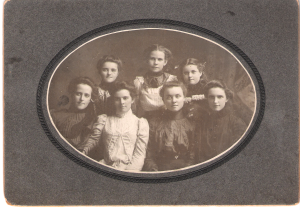
Social Satire
Wikipedia defines social satire as the means by which “vices, follies, abuses, and shortcomings are subject to ridicule.”
William Shakespeare, Jonathon Swift, Oscar Wilde, and Mark Twain may be the most familiar practitioners of the form, but now we have another member of this illustrious club. Largely the purview of cartoonists in today’s world, a brilliant newcomer steps up to stage.
Long in the habit of reading the winner of the Man Booker Prize, this year’s choice did not disappoint. The committee is given the challenge of reading the longlist and then narrowing the field to the shortlist. While it is a daunting task, it is one I would sign up for any day of the week. Choosing the best work from an astonishing array of talent would not be easy, and I can imagine the lively dialogue of dissenting voices. Bookmakers in England bet on the favorite and the choice is never easy. However, one clear voice emerged over all others. Paul Beatty won the coveted award this year.
“The Sellout puts you down in a place that’s miles from where it picked you up.” Dwight Garner, The New York Times.
Social satire is the art of mentioning what we dare not say. If an absolute bumbler is indulging in vile discourse, then we have the luxury of laughing, allowing the architect to escape with his or her life. On the back cover of The Sellout the explanation is offered up this way:
“The work of comic genius at the top of his game, The Sellout questions almost every received notion about American society.”
It is not the subject matter or the form alone that intrigues me. Paul Beatty writes with a voice that is so present, it sings.
From Page 11
“When I was ten, I spent a long night burrowed under my comforter, cuddled up with Funshine Bear, who, filled with a foamy enigmatic sense of language and a Bloomian dogmatism, was the most literary of the Care Bears and my harshest critic. In the musty darkness of the rayon bat cave, his stubby, all-but-immobile yellow arms struggled to hold the flashlight steady as together we tried to save the black race in eight words or less. Putting my homeschool Latin to good use, I’d crank out a motto, then shove it under his heart-shaped plastic nose for approval….
Semper Fi, Semper Funky raised his polyester hackles, and when he began to paw the mattress in anger and reared up on his stubby yellow legs, baring his ursine fangs and claws, I tried to remember what the Cub Scout manual said to do when confronted by and angry cartoon bear drunk on stolen credenza wine and editorial power. ‘If you meet an angry bear-remain calm. Speak in gentle tones, stand your ground, get large, and write in simple, uplifting Latin sentences.
Unum corpus, una mens, una cor, unum amor.
One body, one mind, one heart, one love.
Not bad. It had a nice license plate ring to it.”
Sitting in Quaker State garage, nestled in among an array of tired magazines, the vending machine, and the blaring television set, waiting for the man to come out from the hole in the floor under my car, I was glad to be alone in the small waiting room. If anyone were to observe me reading the last pages of The Sellout, they would have seen a perpetually silly grin on my face. I wished I hadn’t blasted through the book so quickly because the uplift was a welcome respite. I hope I don’t have to wait so long to read a work of great social satire again.
American Dreamer
Decline. Is there anyone alive who does not fear it? Is there a way
to ascertain the beginning, the end of the beginning, or the beginning
of the end? How is to be avoided? More importantly, what is it?
J.D. Vance tackles the topic in a moving and personal memoir entitled, Hillbilly Elegy: A Memoir of a Family and Culture in Crisis. In the introduction, Vance describes himself as a Scots-Irish hillbilly at heart. He lets us know that his tribe is a pessimistic bunch.
Caught up in the belief that to look through a glass darkly is to be avoided at all costs, I was drawn into the story right away. We know from the beginning that J.D. Vance climbed from his uncertain origins to graduating from Yale law school. The story outlines the journey. It is uplifting because there is not a person alive who does not wonder if they had been born in unfortunate circumstances, or were challenged by terrible poverty, would they be one of the few to make it out? Readers are placed squarely into the houses and schools and yards of Vance’s life with an almost breathless desire to see him succeed. While he does not pretend to have the answers, he neither blames nor preaches; the book reads as a statement of fact. Look about.
Going back to the Scots-Irish, or the Ulster Scots, and the roots of their beginning, I knew from learning about the English Civil War, that the term goes back to the plantations of Northern Ireland. Cromwell gave vast tracts of conquered land in Ireland for the Scots to settle. Many had been soldiers in his army and this new land represented the spoils of war. It was hoped that they would take root and serve to be a permanent anchor in Ireland. That set the stage for centuries of conflict and strife. They had to fight to maintain their foothold, and fight they did. The second migration to America yielded a group who settled in the hills of Appalachia to eke out a living. We know that George Washington used them handily, as did Stonewall Jackson. Wanting nothing more than a fair shot at the American dream, and never asking for help or handouts, became a hallmark of their values. As the jobs became scarce and the resources few and far between, what we learn from Vance’s experience is that we need to understand this despair.
To say this book struck a cord with readers is an understatement. Currently, it is topping the charts of the New York Times Bestseller list. A memoir, written with such clarity and ease, will always do well, but the success of this book speaks to something larger. We are in a time when everyone seems to be scratching their heads. Hope is infectious, and there is much in this book that provides it. We learn that when Vance applied to Law School he automatically eliminated the big Ivy League choices thinking that he would neither qualify nor be able to pay the tuition.
On Page 199 he writes:
“The New York Times recently reported that the most expensive schools are paradoxically cheaper for low-income students. At Harvard, the student would pay only about thirteen hundred while the tuition is forty thousand. Of course, kids like me don’t know this.”
When I became an American Citizen, in my welcome packet was a letter from the President encouraging me to take advantage of the many opportunities before me. I could not think of a nicer welcome. Not knowing what else to do with that information, I kept my eyes and ears open. What Vance is writing about is all too familiar. I know what it is like to grow up in a family whose ethic is based on hard work and never taking handouts of any kind. It is the most uncomfortable feeling in the world to choose to succeed knowing that you may not have the support of those closest to you. Do it anyway. That is the great message of this book.
“Hope is the thing with feathers,” wrote Emily Dickinson. What were her chances of achieving any success as a poet, let alone immortality? The crisis of any culture is solved when the challenge is met, and necessary changes are made. That is what enabled J. D. Vance to travel from the “holler,” to Ohio, to the Marines, to College, to law school and then to where he is today sitting at the top of the charts.
J.D. Vance tackles the topic in a moving and personal memoir entitled, Hillbilly Elegy: A Memoir of a Family and Culture in Crisis. In the introduction, Vance describes himself as a Scots-Irish hillbilly at heart. He lets us know that his tribe is a pessimistic bunch.
Caught up in the belief that to look through a glass darkly is to be avoided at all costs, I was drawn into the story right away. We know from the beginning that J.D. Vance climbed from his uncertain origins to graduating from Yale law school. The story outlines the journey. It is uplifting because there is not a person alive who does not wonder if they had been born in unfortunate circumstances, or were challenged by terrible poverty, would they be one of the few to make it out? Readers are placed squarely into the houses and schools and yards of Vance’s life with an almost breathless desire to see him succeed. While he does not pretend to have the answers, he neither blames nor preaches; the book reads as a statement of fact. Look about.
Going back to the Scots-Irish, or the Ulster Scots, and the roots of their beginning, I knew from learning about the English Civil War, that the term goes back to the plantations of Northern Ireland. Cromwell gave vast tracts of conquered land in Ireland for the Scots to settle. Many had been soldiers in his army and this new land represented the spoils of war. It was hoped that they would take root and serve to be a permanent anchor in Ireland. That set the stage for centuries of conflict and strife. They had to fight to maintain their foothold, and fight they did. The second migration to America yielded a group who settled in the hills of Appalachia to eke out a living. We know that George Washington used them handily, as did Stonewall Jackson. Wanting nothing more than a fair shot at the American dream, and never asking for help or handouts, became a hallmark of their values. As the jobs became scarce and the resources few and far between, what we learn from Vance’s experience is that we need to understand this despair.
To say this book struck a cord with readers is an understatement. Currently, it is topping the charts of the New York Times Bestseller list. A memoir, written with such clarity and ease, will always do well, but the success of this book speaks to something larger. We are in a time when everyone seems to be scratching their heads. Hope is infectious, and there is much in this book that provides it. We learn that when Vance applied to Law School he automatically eliminated the big Ivy League choices thinking that he would neither qualify nor be able to pay the tuition.
On Page 199 he writes:
“The New York Times recently reported that the most expensive schools are paradoxically cheaper for low-income students. At Harvard, the student would pay only about thirteen hundred while the tuition is forty thousand. Of course, kids like me don’t know this.”
When I became an American Citizen, in my welcome packet was a letter from the President encouraging me to take advantage of the many opportunities before me. I could not think of a nicer welcome. Not knowing what else to do with that information, I kept my eyes and ears open. What Vance is writing about is all too familiar. I know what it is like to grow up in a family whose ethic is based on hard work and never taking handouts of any kind. It is the most uncomfortable feeling in the world to choose to succeed knowing that you may not have the support of those closest to you. Do it anyway. That is the great message of this book.
“Hope is the thing with feathers,” wrote Emily Dickinson. What were her chances of achieving any success as a poet, let alone immortality? The crisis of any culture is solved when the challenge is met, and necessary changes are made. That is what enabled J. D. Vance to travel from the “holler,” to Ohio, to the Marines, to College, to law school and then to where he is today sitting at the top of the charts.
“Float Like a Butterfly”
Today we look back on the life of a man who came into this world as Cassius Clay.
He captured the attention of America, not only by his prowess in the
ring but by the stand he took against the Vietnam War. While he is
eulogized across all media outlets, I wish to share a personal story
about the day Ali came to our town. We were all in an uproar.

To set the stage, I must part the mists of time and go back to the month of March 1966, when a fight, booked at Maple Leaf Gardens in Toronto, tore our family asunder. The stadium built on a wing and a prayer housed many boxing matches, but this was a fight like no other. My grandfather, Conn Smythe, still at the helm as Chairman of Board, hit the roof over the prospect of a known draft dodger darkening the door of his temple. A veteran and hero of two world wars, he was a consummate military man who felt that that duty to one’s country was sacrosanct. The only reason the fight was booked north of the border is that no American stadium would allow the match between Ali and Ernie Terrell to take place. Small town radio disc jockeys were having a field day saying that in no way shape or form would their town allow the Ali/Terrell fight. My grandfather agreed. The Forum in Montreal declined, and he believed we should do the same. My father, Stafford Smythe, President of the Toronto Maple Leafs, and a war veteran himself chose not to slam the door in Ali’s face and refused to knuckle under. We in the Smythe family had two fights on our hands.
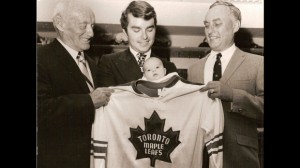
As the youngest daughter and a preteen at the time, we were all involved in the donnybrook. My mother thought my grandfather would cool off in time. My brother, the go-between, told us otherwise. It was less than a year since we lost our grandmother, the peacemaker, and we were scared. A way out presented itself when Terrell, unable to meet the financial obligation, backed out. My father’s partner, Harold Ballard, in charge of all non-hockey related attractions and the man who had set the whole show on the road, refused to budge. He found a Canadian boxer by the name of George Chuvalo to accept the challenge. With a scant twenty-three days in which to train, we had a new fear that raced around the school yard, was discussed by Moms over coffee, had people calling our house incessantly, and seemed like a real possibility. Ali would kill Chuvalo. Everyone said if he didn’t kill him he would knock him out in the first round. It would be a joke, a waste of time for anyone who bought a ticket, and a disgrace to Toronto and our beloved Maple Leaf Gardens. My father would have blood on his hands.
As the day approached, my grandfather had neither softened nor cooled. He increased his efforts, calling boxing officials and trying to get the match stopped. Ali crossed the border and arrived in Toronto. He later said that he had never been treated as nicely anywhere.
The fight was one of the greatest of Ali’s life. It went fifteen rounds. George Chuvalo came out from his corner with fierce determination. He remained standing to the bitter end. He was incredible, and so was Ali. It was the greatest fight to ever take place at Maple Leaf Gardens. It changed our lives. It was a turning point.
One day over lunch when describing this incident to a friend she said, “Isn’t that the Rocky story?” George Chuvalo is still with us. He is as strong as ever, and he is still one of my heroes.

At this point in time, as we say farewell to Ali, may he be remembered as the champion he became. There is more to his story than meets the eye. He was supposed to do what he was told; I heard this just about everywhere I went. He wasn’t obedient. He was uppity. He didn’t know his place. Perhaps this is true. He was a man who decided that his place was within the realm of his own choosing. One could not help but admire the courage with which he lived his life. “Float like a butterfly, sting like a bee.” The stinging is over now. Float in peace, Ali. We will always be glad you came to town.

To set the stage, I must part the mists of time and go back to the month of March 1966, when a fight, booked at Maple Leaf Gardens in Toronto, tore our family asunder. The stadium built on a wing and a prayer housed many boxing matches, but this was a fight like no other. My grandfather, Conn Smythe, still at the helm as Chairman of Board, hit the roof over the prospect of a known draft dodger darkening the door of his temple. A veteran and hero of two world wars, he was a consummate military man who felt that that duty to one’s country was sacrosanct. The only reason the fight was booked north of the border is that no American stadium would allow the match between Ali and Ernie Terrell to take place. Small town radio disc jockeys were having a field day saying that in no way shape or form would their town allow the Ali/Terrell fight. My grandfather agreed. The Forum in Montreal declined, and he believed we should do the same. My father, Stafford Smythe, President of the Toronto Maple Leafs, and a war veteran himself chose not to slam the door in Ali’s face and refused to knuckle under. We in the Smythe family had two fights on our hands.

As the youngest daughter and a preteen at the time, we were all involved in the donnybrook. My mother thought my grandfather would cool off in time. My brother, the go-between, told us otherwise. It was less than a year since we lost our grandmother, the peacemaker, and we were scared. A way out presented itself when Terrell, unable to meet the financial obligation, backed out. My father’s partner, Harold Ballard, in charge of all non-hockey related attractions and the man who had set the whole show on the road, refused to budge. He found a Canadian boxer by the name of George Chuvalo to accept the challenge. With a scant twenty-three days in which to train, we had a new fear that raced around the school yard, was discussed by Moms over coffee, had people calling our house incessantly, and seemed like a real possibility. Ali would kill Chuvalo. Everyone said if he didn’t kill him he would knock him out in the first round. It would be a joke, a waste of time for anyone who bought a ticket, and a disgrace to Toronto and our beloved Maple Leaf Gardens. My father would have blood on his hands.
As the day approached, my grandfather had neither softened nor cooled. He increased his efforts, calling boxing officials and trying to get the match stopped. Ali crossed the border and arrived in Toronto. He later said that he had never been treated as nicely anywhere.
The fight was one of the greatest of Ali’s life. It went fifteen rounds. George Chuvalo came out from his corner with fierce determination. He remained standing to the bitter end. He was incredible, and so was Ali. It was the greatest fight to ever take place at Maple Leaf Gardens. It changed our lives. It was a turning point.
One day over lunch when describing this incident to a friend she said, “Isn’t that the Rocky story?” George Chuvalo is still with us. He is as strong as ever, and he is still one of my heroes.

At this point in time, as we say farewell to Ali, may he be remembered as the champion he became. There is more to his story than meets the eye. He was supposed to do what he was told; I heard this just about everywhere I went. He wasn’t obedient. He was uppity. He didn’t know his place. Perhaps this is true. He was a man who decided that his place was within the realm of his own choosing. One could not help but admire the courage with which he lived his life. “Float like a butterfly, sting like a bee.” The stinging is over now. Float in peace, Ali. We will always be glad you came to town.
Treasure in the Trash
“Beware lest in attempting the grand, you overshoot the mark and become grandiose.” Voltaire
I came across this snippet the other day on Twitter. The advice, earmarked to writers, could apply to just about anything. It would certainly apply to editing.
This time of year we are in a grand editing process. While the natural world springs to life, we need to make room for things to grow. Keep this and discard that. How do we decide? It was on Easter Sunday that I heard of the concept of holding up hangers in the closet and asking yourself if the object in your hand affords joy. What a great idea. Those of us whose parents were children in the Depression years were schooled, in some cases quite harshly, about discarding things willy-nilly. It can be a source of great strife between couples depending on the ferocity of the message. Every object in the house could have a use at some point and to have to run out and purchase something recently discarded, can cause genuine distress. Others want to pare down, and certainly the modern look we see displayed in stores and magazines is becoming more and more devoid of clutter.
Yesterday, we celebrated motherhood and mothers who gave tirelessly to shape our sensibility. I did think of my mother when I read Voltaire’s comment. I thought about how it would make her laugh. As she worked in her later years as an interior designer she had renowned taste. She found a way to reconcile her childhood teachings with creating beautiful surroundings. Her possessions grace the homes of her children, and grandchildren. She chose objects with care, and they have lasted the test of time. She would tell us that something “looked tired.” It could be a table. Once it acquired this sense of fatigue, it was out the door to anyone who would take it. How do I stand on this issue? I feel as if I have one foot in a boat and the other on the dock. A decision needs to be made quickly before disaster strikes. The age of some pieces that adorn our lives never ceases to amaze me. We make our toast every morning in a toaster that has been in use my entire life. It has never broken. The toast goes down automatically and comes up by itself perfectly. Almost everything I surround myself with is old.
I am drawn to the blank page because it is empty. I want to fill it up. Years ago, I thought writing a novel just involved getting enough words together to fill up all the pages. The sad truth came from a gifted teacher, a novelist who taught at Mills College and she gave it to me straight. “You may have filled up your briefcase with pages, but you have not written a novel.” Together we worked with what I had, and I learned that the real trick is filling up pages and then throwing them in the garbage. Hemingway once said that he could tell that his writing was going well when the waste-basket was full of really good stuff.
Yesterday I read a quote in Vanity Fair from Lee Radiwill. “Great style is editing.”

Whether it is in art, a beautiful interior or an excellent book, that is the key. Do you know what great designers have? Storage units. One piece, edited out, may reappear years later in another place and time. The same is true for chapters or paragraphs of any work in progress. Gone are the days when we ripped a sheet of paper from the typewriter and tossed it in a nearby bin. We can watch our words disappear before our very eyes. Or, like me, you might just want to keep them in a separate document. Perhaps they may improve with age. Out of all the rubbish, a new idea may germinate.
Toaster photo: “Copyright © 2016 by Craig Rairdin.”
The Discipline of Desire

“The discipline of desire is the background of character.” John Locke
How do we maintain a free society? Is it bred in the bone, or is it up for grabs?
Having just finished reading Jane Mayer’s Dark Money, my eyes have been opened. It is not as if I did not know about the undue influence of special interests in government; everyone is aware of this fact. The term “special interests,” is vague, and if you cannot put a face to something, it is hard to imagine. Television advertising paid for by groups with names that sound good, Americans for this, that, or the other thing, makes a person think that these organizations are comprised of a group of individuals who came together to help solve problems. What we are not aware of is from whom the funding comes. Likewise, we don’t always know to what ends. Like most people, I err on the side of a general belief that people are inherently good. This line of thinking is the product of a Swiss- born French philosopher who influenced Thomas Jefferson, Jean-Jacques Rousseau. (1712-1778)
Hobbes, on the other hand, described life as, “solitary, nasty, brutish and short.” Having witnessed the English Civil War, his outlook was both Calvinistic and pessimistic.
John Locke, the other great influence, wrote in Two Treatise of Government, “We are like chameleons. We take our hue and the color of our moral character from those around us.”
I am not blind to the fact self-interest drives most decisions. When
Jane Mayer described the heart of the ideology of the far right, she
expressed the beliefs of some that there should be no limit as to what
people can acquire and keep. Many would say that is what made America.
Ronald Regan, running for President in 1980 asked, “What is wrong with
letting people keep their own money?” It is a good question. It seems
like every democracy has been in this argument forever. Remember the
heated exchanges between Archie Bunker and the Meathead we laughed at on
All in the Family? We all have friends who are on opposite sides, and
the day we can no longer have these lively debates would be a very sad
day indeed. It is completely understandable that if you amassed a great
fortune, you would naturally feel you had something significant to
contribute to the discourse. You would also feel that you lived in a
great country that made it all possible, and that you wouldn’t want
anything to change. You would want to find politicians who would do your
bidding when you came up against roadblocks. You would pick up the
phone and demand action. You may even believe that you do not have any
responsibility to your fellow man. You may feel as John Locke stated
that the only purpose of government is the defense of property. You may
choose to devote considerable time and resources to furthering these
views. Would that constitute undue influence, or would it be
contributing to the discourse? That is that is the question.There is, however, one flaw in this thinking. Hammered into my head in my teens, by the Headmistress of my school was this universal truth from the Bible: “To whom much has been given, much will be required.” Fans of Downton Abbey will remember that it was played out in nearly every episode. Nobless Oblige. If fortune has smiled on you, it is your duty to make your life about good works. One can see philanthropy everywhere, and one can point to all the generosity displayed by the wealthy. Some feel there should be no taxes at all, and if let alone, people would naturally give aid where it is needed. The only flaw I see in that philosophy is that it is too willy-nilly. It is not organized. When George H. W. Bush referred to “a thousand points of light,” in a speech written for him by Peggy Noonan, it sounded well and good. A little here and a little there does not build roads and bridges. So we aught to question the belief that we would be better off without any government at all. Too much would not be good either because I still believe that I was born free.
Out here on Windy Bay, in the beautiful state of Idaho, watching the great birds return from the south, I see that life is primarily about nest building and fishing. Maybe I can take my “hue and color” from them.
No Small Potatoes
There has been a movement afoot in literature to focus on one
commodity, and make a book of it. People have written about salt, wine,
and chocolate. I wondered if anyone has written about what the great
state of Idaho is known for, namely, the potato.
How did this come to pass? How is it that when a person from Idaho travels, he or she is inevitably asked about potatoes. It turns out that Idaho was a trailblazer in this regard when in 1937 the Idaho Potato Commission was founded. This body, funded by a tax paid by potato farmers, set out to advertise on radio and later television, to create a brand identity from a single crop. With a seal fashioned, the customers were encouraged to look for that mark when purchasing what was to become our famous potatoes. Lots of other states grow the crop, but the affection and identity formed by the commission created a market for thirteen billion pounds of spuds, one- third of all those sold in the United States.
When I was in school in Toronto, I recall the day the teacher told us that the famine was caused by a lazy population who stupidly lived on one crop because they could not be bothered to grow anything else.
“When that crop suffered a blight they starved,” she told us, with the implication that they should have known better hanging in the air.
I remember looking out the window, trying to sift through her facts with what I knew about my own family, all of whom are avid gardeners and farmers. At home, I asked if the story were true and heard that food had been exported to England all through those dark days. Imagine having to take the harvest to market, load a ship and return home to a house of desperate want. As the “croppies” were only given a scant bit of land to cultivate for private use, the “pratties” gave the highest yield and provided the greatest nourishment.
These are the facts: 750,000 were confirmed dead of starvation. Bearing in mind that many more died in the coffin ships landing in Montreal and Boston, this would be a severe underestimation. Without the hospitals, or the manpower necessary to deal with the influx, the sick passengers arriving in Quebec were put on an island in the St. Lawrence and left exposed to the elements. Promised, land, cash and food upon arrival, they arrived to find nothing and no way home. The bit of land they left behind on the dear, old sod had been exchanged for the price of their passage. Cecil Woodham Smith reported that during the famine years, 257,000 sheep were exported to England from lands held by absentee landlords. 480,827 swine went over as well as 186,483 head of cattle. Not even mentioning other crops, the picture is clear.
There is a happy ending to this tale. The Irish flourished in both the United States and Canada. Reading Galway Bay prompted me to look up the history of my maternal grandmother, Rose Cahill Gaudette. One of ten children in her family, I learned that her mother was the oldest in a family of ten. Examining records found on Ancestry.com, my blood ran cold when I saw the date. In 1848, Thomas Cahill arrived in Montreal. Famine. Coffin ship. Most of the passengers died, and their bodies were tossed over. Of the living, it was decided to send the Irish on a barge to Toronto. The sun blazed and the fair skins burned. Once again they were placed on an island off shore. Yet the good people of the city rowed out in small boats and volunteered to tend the sick, risking their own lives in the process. The Cahills made their way to the gorgeous Ottawa valley, carved a life in the wilderness, and flourished.
From one noun a great story may unfold.
How did this come to pass? How is it that when a person from Idaho travels, he or she is inevitably asked about potatoes. It turns out that Idaho was a trailblazer in this regard when in 1937 the Idaho Potato Commission was founded. This body, funded by a tax paid by potato farmers, set out to advertise on radio and later television, to create a brand identity from a single crop. With a seal fashioned, the customers were encouraged to look for that mark when purchasing what was to become our famous potatoes. Lots of other states grow the crop, but the affection and identity formed by the commission created a market for thirteen billion pounds of spuds, one- third of all those sold in the United States.
On a past St. Patrick’s Day, a dear friend by the name of Mary, told me
about a book she had just read by Mary Pat Kelly. Entitled, Galway Bay,
the novel is an actual oral history passed down from one generation to
the next. Told primarily through the women, it is the tale of one
immigrant family and their travails from Ireland to Chicago. While it is
not about the potato famine, called An Gorda Mor in Gaelic, it is the
great catalyst of the tale.
“They tried to kill us, but we didn’t die.” The thread of this story,
handed down through the ages, is one of incredible hardship and then
survival.When I was in school in Toronto, I recall the day the teacher told us that the famine was caused by a lazy population who stupidly lived on one crop because they could not be bothered to grow anything else.
“When that crop suffered a blight they starved,” she told us, with the implication that they should have known better hanging in the air.
I remember looking out the window, trying to sift through her facts with what I knew about my own family, all of whom are avid gardeners and farmers. At home, I asked if the story were true and heard that food had been exported to England all through those dark days. Imagine having to take the harvest to market, load a ship and return home to a house of desperate want. As the “croppies” were only given a scant bit of land to cultivate for private use, the “pratties” gave the highest yield and provided the greatest nourishment.
These are the facts: 750,000 were confirmed dead of starvation. Bearing in mind that many more died in the coffin ships landing in Montreal and Boston, this would be a severe underestimation. Without the hospitals, or the manpower necessary to deal with the influx, the sick passengers arriving in Quebec were put on an island in the St. Lawrence and left exposed to the elements. Promised, land, cash and food upon arrival, they arrived to find nothing and no way home. The bit of land they left behind on the dear, old sod had been exchanged for the price of their passage. Cecil Woodham Smith reported that during the famine years, 257,000 sheep were exported to England from lands held by absentee landlords. 480,827 swine went over as well as 186,483 head of cattle. Not even mentioning other crops, the picture is clear.
There is a happy ending to this tale. The Irish flourished in both the United States and Canada. Reading Galway Bay prompted me to look up the history of my maternal grandmother, Rose Cahill Gaudette. One of ten children in her family, I learned that her mother was the oldest in a family of ten. Examining records found on Ancestry.com, my blood ran cold when I saw the date. In 1848, Thomas Cahill arrived in Montreal. Famine. Coffin ship. Most of the passengers died, and their bodies were tossed over. Of the living, it was decided to send the Irish on a barge to Toronto. The sun blazed and the fair skins burned. Once again they were placed on an island off shore. Yet the good people of the city rowed out in small boats and volunteered to tend the sick, risking their own lives in the process. The Cahills made their way to the gorgeous Ottawa valley, carved a life in the wilderness, and flourished.
From one noun a great story may unfold.





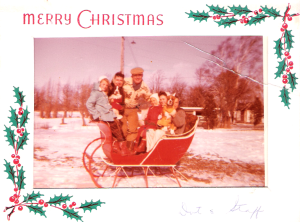
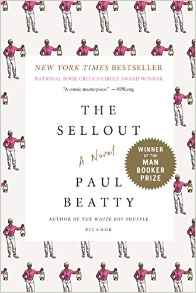
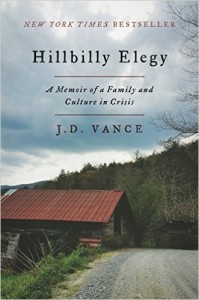


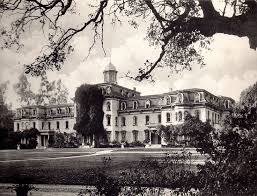

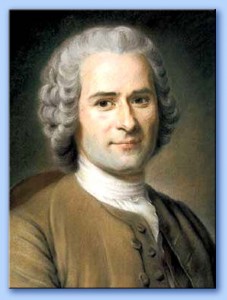


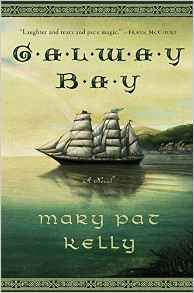
No comments:
Post a Comment